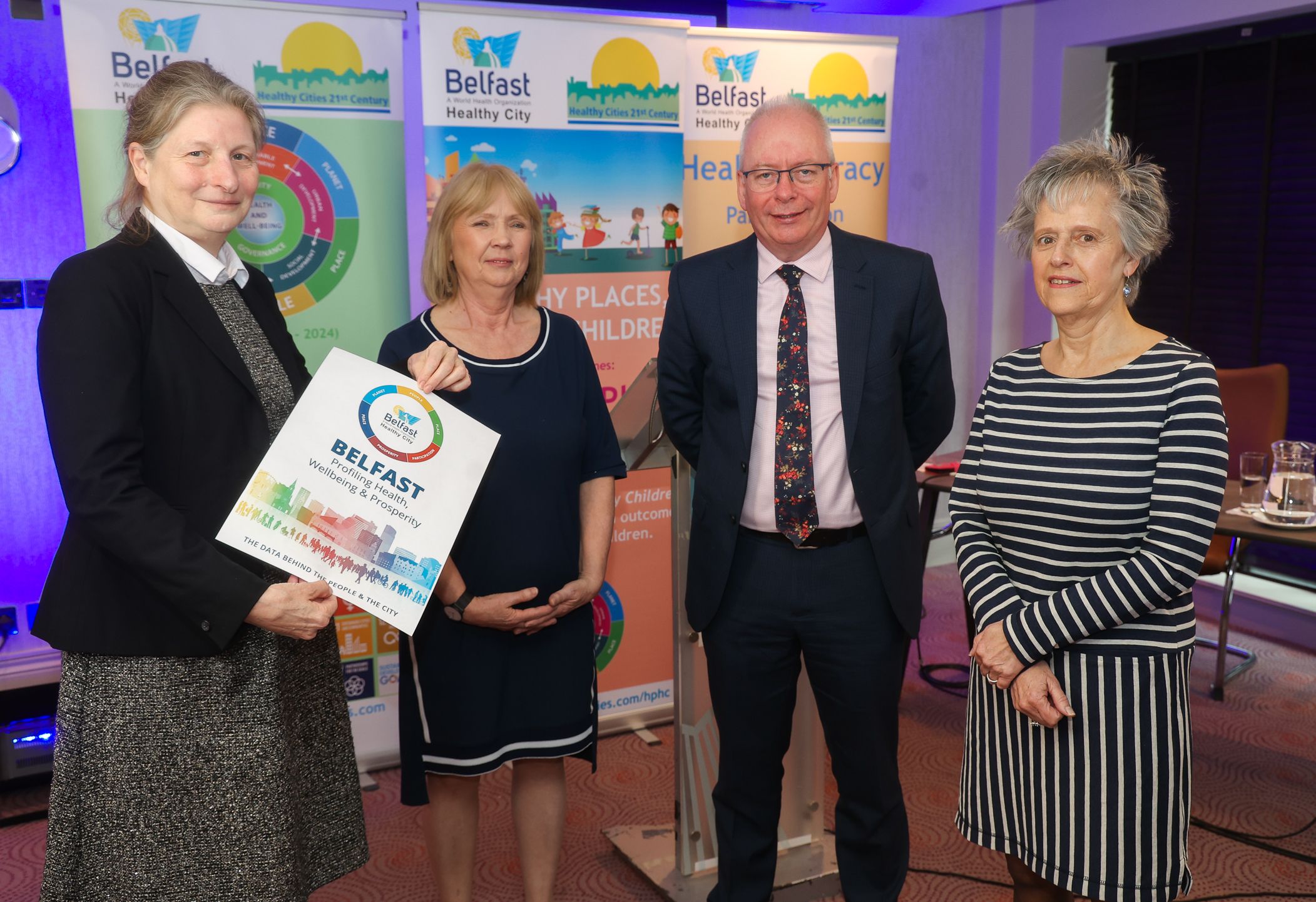A PROFILE which takes an in-depth look at the health and well-being of Belfast has found that men in the city have poorer health outcomes.
The report which has been launched by Belfast Healthy Cities and is titled ‘BELFAST Profiling Health, Wellbeing and Prosperity' examines the data associated with the World Health Organization (WHO) European Healthy Cities Network Phase VII (2019-2025) 6 P framework, People, Place, Prosperity, Peace, Participation and Planet. The profile analyses data across these six areas, looking at trends and highlighting areas of concern.
The reporting on the thousands of indicators and the interpretation and linkage of these indicators across the six chapters was undertaken by Expert Advisor, Erica Ison, who presented some of her key findings to attendees at an online event last week.
Also presenting at the event were Aidan Dawson, Chief Executive of the Public Health Agency, and Dr Kira Fortune, Regional Advisor, Healthy Cities, Health Promotion and Well-being, World Health Organization.
Speaking at the launch event, Dr Karen Casson, interim Chair of Belfast Healthy Cities, said “We are delighted to launch BELFAST Profiling Health, Wellbeing & Prosperity today. This is an invaluable resource to inform the future direction for all aspects of public health which impact on health and wellbeing.
“In analysing the data, and identifying important trends, we can see the indicators that are improving in the city but also areas that remain a challenge. Some of these indicators and trends are well known, such as lower life expectancy and health outcomes in areas of the city, but other indicators that impact on health such as employment, education, and crime-related indicators are still challenges in some areas.
“Belfast also has higher levels than the rest of Northern Ireland for anxiety and higher hospital admission rates for alcohol and drug-related causes.
“The environment has an important role to play in promoting good physical and mental wellbeing. Belfast is seeing reductions in car journeys and carbon emissions, but these reductions are not at the levels required to tackle climate change.
"We see positive trends across many of the indicators and the profile will have a key role in encouraging stakeholders and policy makers to take the bold policy decisions that can result in important positive trends over the coming years.”
Belfast Healthy Cities Chief Executive, Joan Devlin, added: “The work to bring together so much data, and lay it out in such a clear and informative way is an incredible achievement. I would like to thank Dr Erica Ison, the Profile Advisory Group members and all the organisations who supported this work, including NISRA and NIHE.
“We hope that this City Profile will be a springboard to take steps across these indicators to upturn all the trends and improve health and well-being for our citizens. We know there are already significant programmes underway at community level, and these data can bolster work, alongside strategic policy changes that have the potential to transform health inequalities in our city.”
Development of the City Health Profile is a requirement of Belfast being a WHO Healthy City; the main goal of the WHO-led global movement is to make health a priority issue within the social, economic, and political agenda of cities.
The overall goal is to engage local governments in processes of political commitment, institutional change, capacity building, partnership planning and innovation to build a strong movement for public health at the local level. Belfast was first designed as a Healthy City in 1998, and just last year it was among the first cities to achieve healthy city status in Phase VII (2019-2025).





